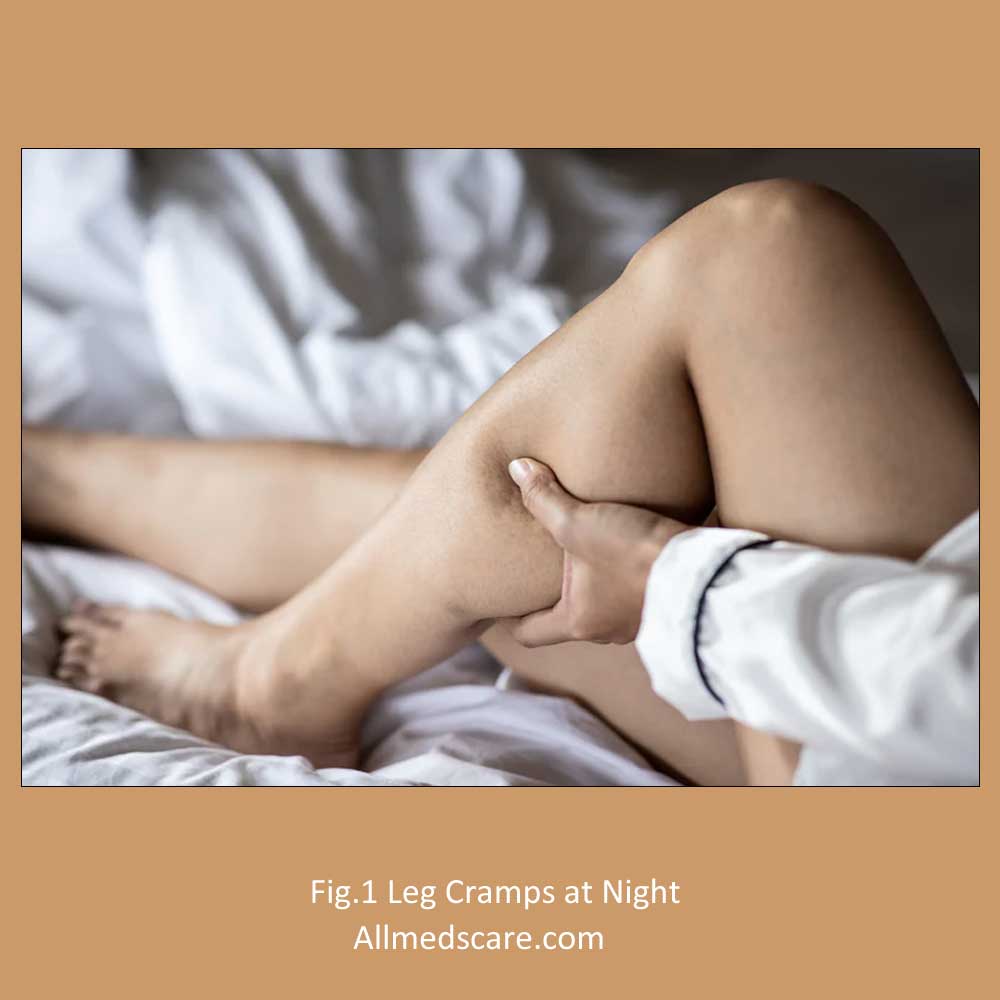
Leg Cramps at Night
What are Leg Cramps?
Leg Cramps at Night are a serious issue. Leg cramps are abrupt, unconscious, excruciating muscle pains that typically occur in the calf, foot, or thigh. They are also sometimes referred to as “Charley horses.” Your leg may occasionally spasm, or stiffen up uncontrollably, as a result of the cramp. Although uncomfortable, cramps are typically not harmful.
What does a leg cramp feel like?
A leg cramp feels like a muscle that has been clenched, constricted, and knotted. It might even be intolerably painful or uncomfortable. After the cramp passes, your muscles there may continue to pain for several hours.
Leg cramps are possible during the night.
Leg cramps occur while you are either sleeping or not very active. They could cause you to wake up, hinder your ability to go back to sleep and keep you up all night with pain. Leg cramps might occur yearly, monthly, weekly, or even every night. It all depends on the individual. Anyone at any age can get nocturnal leg cramps, but elderly persons experience them the most frequently. Leg cramps occur at least once every two months in 33% of adults over the age of 60. They will almost certainly affect every adult over the age of 50 at least once. Children will also make up 7% of the population. Leg cramps affect 40% of pregnant women on average.

Who gets leg cramps?
Leg cramps are more likely to occur as you become older. This is due to the fact that tendons naturally become shorter with age. Tendons are the tissues that link your muscles to your bones. A woman is also more prone to acquire them. Leg cramps can occur at night for up to 60% of adults and up to 40% of kids and teenagers.
Causes of Cramps at Night
- Dehydration: Dehydration is one of the main reasons for leg cramps. Your muscles may tense and spasm as a result of fluid loss, resulting in cramps. Sweating, throwing up, having diarrhea, or not drinking enough water can all cause dehydration.
- Imbalance in the Electrolyte: Leg cramps may be caused by an electrolyte imbalance, including a deficiency in potassium, calcium, or magnesium. Muscle cramps can come from a lack of certain minerals, which are crucial for the health of muscles.
- excessive muscle usage: Overusing your muscles is a typical night-time cause of leg cramps. Leg cramps can occur in athletes, dancers, or others who engage in strenuous physical activity that involves standing or walking because of overworked muscles.
- Medications: Some medications including diuretics, statins, or steroids can cause night leg cramps as a side effect.
Symptoms of Cramps at Night
Leg cramps can happen unexpectedly at night and leave the affected muscle in excruciating discomfort. The muscle may be sore for some time after the cramp has passed. The cramp might last anywhere from a few seconds to many minutes. The cramp may affect one or both legs, and it may also cause the affected muscle to twitch or spasm.
Remedies for Cramps at Night
- Stretching: Stretching the afflicted muscle gently is one of the most effective strategies to get rid of leg cramps. Standing close to a wall and stooping forward with one foot behind the other will help you stretch your calves. Repeat with the opposite leg after 30 seconds of holding the stretch.
- Hydration: By staying hydrated throughout the day, you can lower your risk of developing leg cramps. To replace the minerals lost through sweating, you can also drink electrolyte-rich liquids like sports drinks or coconut water.
- Massage: The affected muscle can be massaged to help it relax and stop cramping. Before gently massaging the muscle, you might use a warm compress or a heating pad to help it relax.
- Medications: When leg cramps occur at night and are severe, your doctor may recommend medications such as muscle relaxants or anti-inflammatory drugs to treat the pain and discomfort they produce.
Prevention of Cramps at Night
- Keep hydrated: Leg cramps can be avoided by drinking enough fluids and maintaining a healthy electrolyte balance.
- Exercise consistently: Regular exercise helps strengthen the muscles and lower the likelihood of night-time leg cramps. To increase muscle flexibility and strength, you can practice yoga, weight training, or stretching activities.
- Do not overuse your muscles: If you engage in physical activities that demand a lot of standing or walking, try to avoid overusing your muscles. To avoid getting tired and cramping, take frequent rests and stretch your muscles.
Conclusion
Leg cramps at night can be a painful and bothersome ailment that compromises the quality of your sleep and interferes with your everyday activities. You can effectively prevent and treat leg cramps by being aware of their causes, signs, and treatments. Consult your doctor if you frequently or severely have leg cramps so that you can identify the underlying reason and get the right care.






